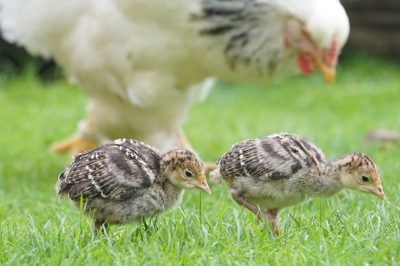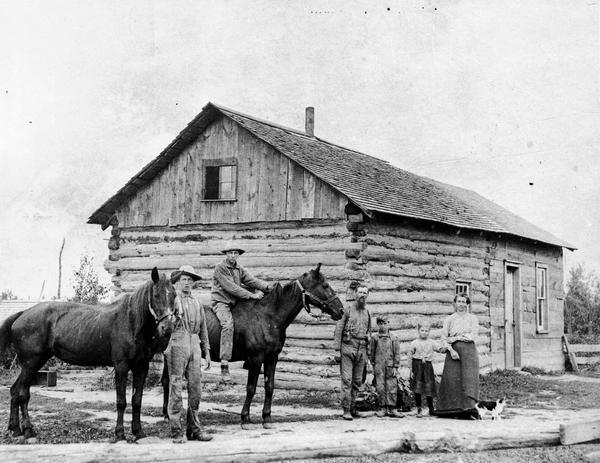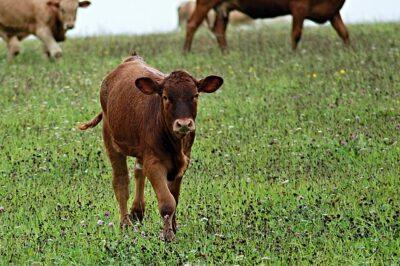|
Listen To The Article
|
If you are considering becoming a homesteader, you know the prospect can be pretty daunting. Among all the other questions and considerations which must be asked and evaluated—such as how it will impact employment, children, extended family, social involvement and finances—the concern about suitability for such a demanding lifestyle looms large.
Do I have what it takes to become a homesteader?
If you are asking yourself that question and wondering whether you and your resources and skill are a good fit for living a sustainable and independent lifestyle, read on for the five homesteader attributes I have found to be most important.
1. Intentionality. Homesteaders need to do what we do with a sense of purpose. It is not a lifestyle which one might just tumble into, and with the exception of being raised in that environment it is not likely to happen without intentionality.
Self-reliance may have been the default way of life in generations past, but society has shifted to a place where a person or family must step off the beaten track to follow the path of homesteading.
In order to make it work, homesteaders need to make a deliberate, focused choice. We need to do it like we mean it.
2. Commitment. A full-scale homesteading operation is not something you dabble in, like trying out audiobooks or a different brand of cordless drill. My dictionary lists synonyms for the word “committed” as “dedicated, devotion and loyal.” Those are good words to keep in mind when entering into homesteading.
 This is not to say that it is not possible to try before you buy. There are many ways to try out homesteading activities beforehand, from container crops on your back deck in the city to volunteering on existing farms.
This is not to say that it is not possible to try before you buy. There are many ways to try out homesteading activities beforehand, from container crops on your back deck in the city to volunteering on existing farms.
I once knew a young woman who was in love with the idea of homesteading and accepted an apprenticeship on her dream farm. It was all she had thought it would be, but her loyalty lay elsewhere. She soon realized that she was more dedicated and committed to friends and fun in town than to raising crops and tending animals, and was not ready for the commitment that homesteading demands. Fortunately for all involved, the young woman who turned out to be in love with her social life was able to walk away with no hardship on anyone.
Get Free Backup Electricity — That Works Even During Blackouts!
But when you do go into homesteading for real, go all in.
3. Optimism. When your livelihood is dependent upon the natural world, optimism is an absolute necessity. There is always next season to look forward to—more rain, a later fall frost, or the maple sap running better. Homesteaders live in perpetual surety that things would have been perfect, and will be next time, without that one unfortunate anomaly.
Homesteaders need to carry an eternal sense of optimism that makes us plant greens when there is still danger of snow, try our hand at cordwood masonry without any prior knowledge of the craft, and let the six-year-old milk the cow. And we need to pick ourselves up and keep moving forward when things don’t work out quite as planned.
Without this glass-half-full outlook on life, the looming possibilities of hurricanes, Japanese beetles, sick lambs, Lyme disease, broken fences and chimney fires would be too much, and we would decide to move back to the city at the first sign of trouble.
4. Courage. Things can get scary on occasion. Most of us were raised in a very different way—food came from the grocery store and farmers’ market, heat materialized from the nudge of the thermostat, lights popped on and off with the flip of a switch, and water ran hot and cold out of the faucet. Sources for some or all of these amenities are different on the homestead, and many come with at least some level of inherent risk, either real or perceived.
Kids in the city don’t have to sneak past the butty goat buck on the path to their favorite fishing hole, and urban moms don’t leave their bread-making to go shoo cows out of the flower garden or deal with snakes between them and morning chores. Homesteaders handle it all, from inclement weather to grouchy 1,100-pound animals to long walks down a wilderness road to rats in the grain bin.
5. Support. Homesteading is tough single-handed. A single person or couple will face a lot of challenges on their own. Extended family, friends, like-minded neighbors, church community or farm partners make all the difference. Let me say that again for emphasis: all the difference. I will not go so far as to say one or two individuals cannot thrive in a completely isolated homesteading endeavor, and I am certain it has been accomplished many times over. But I will say that it is a hard row to hoe, and lack of support will make it all that much more difficult to create and maintain the first four characteristics.
When my husband badly injured his hand while building raised beds for spring planting, our entire season of homesteading was hugely impacted. Garden beds, getting vegetables in the ground, building and installing trellises and cages, fencing, haying, and firewood processing—not getting it done then meant not having the results later.
World’s Smallest Solar Generator … Priced So Low Anyone Can Afford It!
My time and focus went to caring for him first, and then having to pick up his tasks on top of my own. At one of our busiest times of the year, it was too much. Without family and friends who came alongside us and freely gave of their time and skills and even money—planting and building and shoveling and mowing and chain-sawing and splitting and cleaning and animal-tending—we could have been done for.
Final Thoughts
If you are feeling a bit skittish about homesteading after reading this list of important traits, do not worry. Nobody possesses all of these all the time. Nobody. But what we all aspire to have is as many of them as we can, as much as we can, as often as we can.
Attributes can be built and learned, and the five on this list tend to feed off one another. Support builds courage, courage solidifies commitment, and optimism enhances intentionality. The needs for these traits vary greatly. In some situations, homesteaders need all the optimism they can muster and get by with only minimal support. Other times, courage and commitment are the fingers in the dam.
The biggest takeaway is that if you want to build enough of these traits in yourself to succeed at homesteading, you can. You will have to work harder at some on this list than others do, and that is perfectly acceptable and is to be expected.
Homesteading is not for the faint of heart, but it is worth the journey. Develop these five traits along the way, and you will come to realize that you have always had what it takes.
What traits would you add to this list? Share your suggestions in the section below:
Are You Prepared For A Downed Grid? Read More Here.
 Off The Grid News Better Ideas For Off The Grid Living
Off The Grid News Better Ideas For Off The Grid Living





